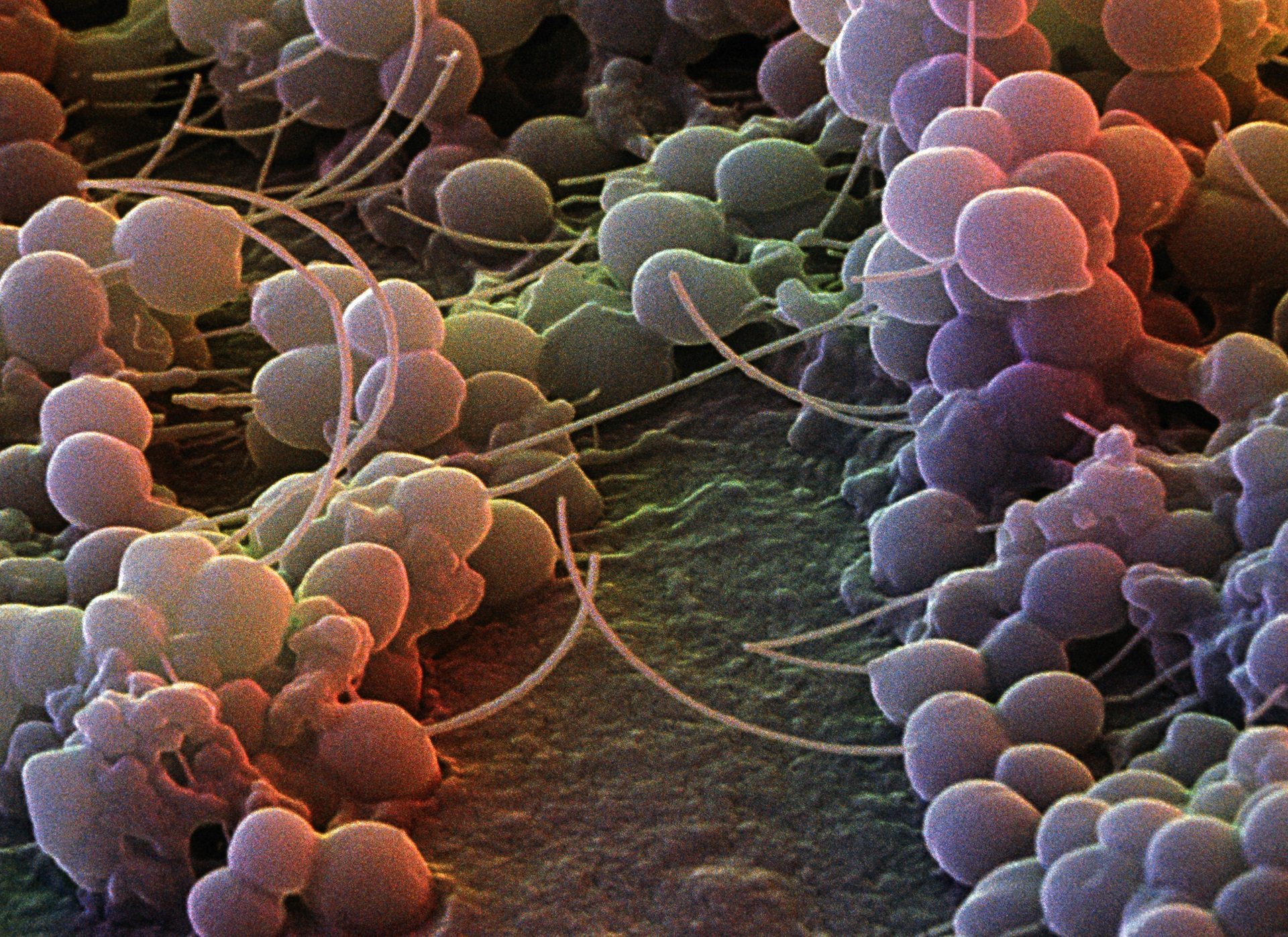Skin bacteria
We carry an enormous amount of microbes with us. You can find these microbes in your intestines but also on your skin. The skin is a very large organ with an average surface area of 1.8 m2 , so a lot of microbes can fit on it. Currently, we know that there are more than 1.5 trillion (ie more than 1,500,000,000,000) bacteria on the skin. We don't notice most of these bacteria. They do live on our skin but our immune system "ignores" them because they do not cause problems and sometimes even help us. An example of this is Staphylococcus epidermidis. These bacteria 'turn on' a very specific part of our immune system and this allows them to 'train' our immune system. Our immune system can learn when it should or should not react to an outside influence. The immune system learns this partly thanks to the microbes we carry with us.
Training the immune system with microbes
This very phenomenon has got researchers thinking. If we can teach the immune system to respond to something, can we use this to our advantage? For example, we know about certain types of cancer that they hide from our immune system so that our body cannot clear them. This is a clever trick of these cells. You can compare it to a game of hide and seek, but the immune system does not know who had hidden. As a result, the tumor cells have an advantagr. A lot of research is currently being done to see if we can teach our own immune system what to look for. One way to do this is by showing our immune system something it will recognize in combination with something that isn’t recognized (yet). This way the playing field is leveled and the tumor cells no longer have an advantage.
Helping bacteria
A research group from the United States started looking for microbes that can train our immune system and ended up with the Staphylococcus epidermidis. This bacterium lives on our skin and has an important role in training our immune system. This makes it possible that this bacterium could potentially help train the immune system against melanomas, a form of skin cancer. The researchers genetically modified the bacterium to resemble a tumor cell. In this way, they wanted to see if our immune system could learn to recognize and attack tumor cells.
This was first done in mice, and the results seem to be very positive. Combined with other drugs that help the immune system, this caused these animals' immune systems to begin attacking tumors. Before this can be tested in humans much more research needs to be done, but for now this looks hopeful. Who knows, maybe in the future we can use the natural function of bacteria combined with scientific techniques to treat diseases in this way.

